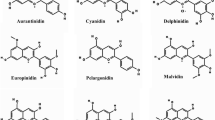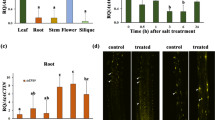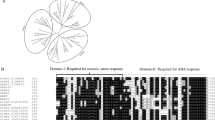Abstract.
Although studies in plant and animal cell culture systems indicate farnesylation is required for normal cell cycle progression, how this lipid modification of select proteins translates into whole-organism developmental decisions involving cell proliferation or differentiation is largely unknown. The era1 mutant of the higher plant Arabidopsis thaliana (L.) Heynh. offers a unique opportunity to understand the role farnesylation may play in regulating various processes during the development of a multicellular organism. Loss of farnesylation affects many aspects of Arabidopsis growth and development. In particular, apical and axillary meristem development is altered and these phenotypes are contingent on the growth conditions.
Similar content being viewed by others
Author information
Authors and Affiliations
Additional information
Received: 25 October 1999 / Accepted: 22 December 1999
Rights and permissions
About this article
Cite this article
Bonetta, D., Bayliss, P., Sun, S. et al. Farnesylation is involved in meristem organization in Arabidopsis . Planta 211, 182–190 (2000). https://doi.org/10.1007/s004250000283
Issue Date:
DOI: https://doi.org/10.1007/s004250000283




